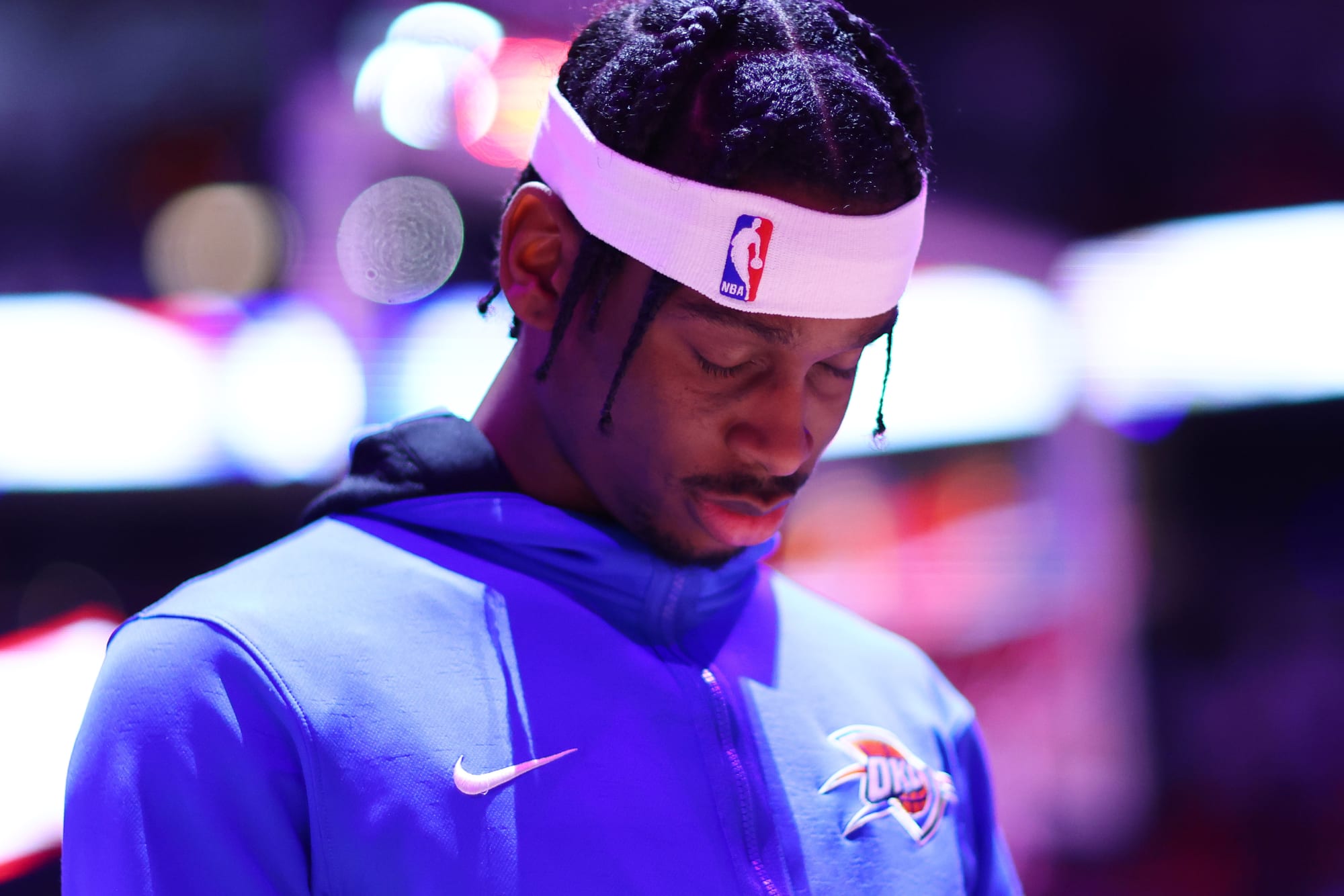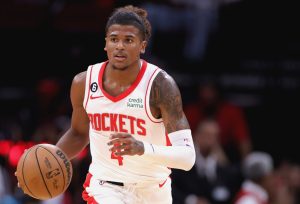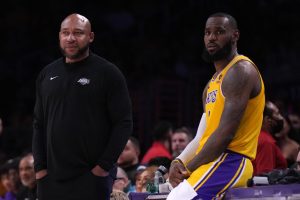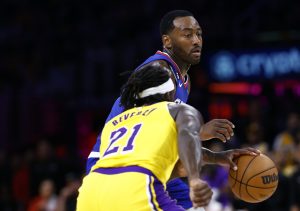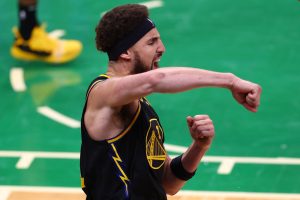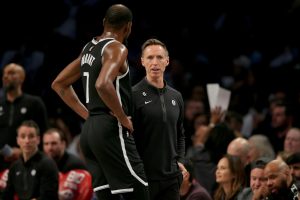Photo by Michael Reaves/Getty Images
Shai Gilgeous-Alexander is a budding star hiding in plain sight. Is this the year the rest of the NBA finally takes notice?
Arguably no young player experiences a starker contrast in their standing among mainstream and diehard audiences than one Shai Gilgeous-Alexander.
To more casual observers, Gilgeous-Alexander is seen as just another young player consuming the empty calories of the ever-rebuilding Oklahoma City Thunder (hence him only being ranked 48th in ESPN’s most recent top-100 list). Meanwhile, more devout viewers see him as a cult classic on the precipice of superstardom.
Which interpretation is the correct one?
I tend to side with the latter party.
It doesn’t take a prolonged gaze to realize that Gilgeous-Alexander is long. And he uses all of his gangly frame to elongate himself over defenders and finish with relative ease.
Last season, he hung around the 70th percentile in rim percentage for his position (per Cleaning the Glass). And he managed that efficiency on incredulous volume. In fact, no one in the association drove downhill more than Gilgeous-Alexander (per NBA.com).
The above montage illustrates the facets of his style that make his driving game so potent. He has a blink-and-you-might-miss-it first step. He’s a master at manipulating defenses by varying his stride length and utilizing changes in speed. And he’s a glutton for punishment, which makes him fearless when he cascades into the eye of the storm.
His intense rim pressure earns him plenty of free throws (the most efficient shot in basketball). His 10.2 free throw attempts per 100 mimic the output garnered by well-known foul-grifter Trae Young.
Also like Young, Gilgeous-Alexander is one of three players in the entire league last year to average at least 26 advantages created per 100 possessions.
Introducing: Advantages Created
This metric measures when a ball-handler creates an opportunity, for themselves or a teammate, for a high-quality shot, regardless of whether that opportunity was seized. Here are the leaders in Advantages Created per 100 last season: pic.twitter.com/RKclN7UHcE— SIS Hoops (@SIS_Hoops) August 22, 2022
This last factoid matters because creating advantages is essentially the primary goal of halfcourt offense. As NBA philosopher Daryl Morey (you may have heard of him) once posited, “until you can’t guard someone with one player, you really haven’t created an offensive situation.”
To create this ‘offensive situation,’ you need someone who can draw two defenders to the ball and turn a 5-on-5 into a 4-on-3. With this drive game we’ve established, Gilgeous-Alexander is able to achieve this Platonic ideal and create those 4-on-3 situations whenever he pleases.
This defensive imbalance he creates is the perfect environment for playmaking. Anytime he creates an advantage, there is almost always an open teammate out on the perimeter. The Oklahoma City Thunder were seventh in the league in 3-point attempts last season, not because they had great shooting personnel but because Gilgeous-Alexander’s gravity created so many open looks for his teammates.
The major concern with his offense is his 3-point shooting. He ended the 2021-22 campaign at a 30% clip, and there is a real fear that in the playoffs he might receive the Ja Morant treatment (the practice of teams going under on ball screens and daring the young guard to burn them from deep).
There is hope for optimism, though. Two indicators that one can turn to, to project future 3-point improvement are free throw and short midrange conversion rates. Players who do well in these categories tend to have great touch (a necessary component of great 3-point shooting), and both of these measurements bode well for Gigleous-Alexander.
He’s an 81 percent free-throw shooter on high-volume (as mentioned above) and a 45 percent short-midrange finisher (76th percentile, per Cleaning the Glass). Also worth noting, in 2020-21, he shot an electrifying 41.8 percent from downtown. This was a small sample size (35 games), but it’s still a promising sign that hints that he can develop into a consistent deep threat moving forward.
Shai Gilgeous-Alexander is a throwback to the mid-range assassins of previous eras
Speaking of the midrange, his in-between game is a callback to the bucket-getter zeitgeist of the mid-2000s. His combination of footwork, ball-handling, and size enables him to create separation and effortlessly loft pull-up jumpers over his adversaries.
This package of hellacious driving, playmaking, and three-level scoring (potential) bears a great deal of resemblance to the loadout once wielded by Anfernee ‘Penny’ Hardaway. And unlike many cross-era comparisons, this analogy isn’t all that farfetched. Even Hardaway’s former teammate Nick Anderson sees the similarities between these two-floor giants.
“I like that,” Anderson said when asked about the comparison during an interview with Basketball News. “I like his size… yeah, I agree with that.”
This is high praise coming from Anderson, especially considering that, during that same interview, he compared Hardaway to the late legend Kobe Bryant.
“I know Kobe was Kobe,” Anderson declared to Basketball News. “But if Penny Hardaway never got hurt, people would be talking about [him] in the same breath.”
At his apex, Hardaway was one of the best offensive players the game has ever seen. An all-time level blend of scoring and playmaking. That is a large burden to put on a young guy, but Gilgeous Alexander is so good that he doesn’t need to be the next Penny Hardaway to blossom into the superstar his advocates know he can be.

